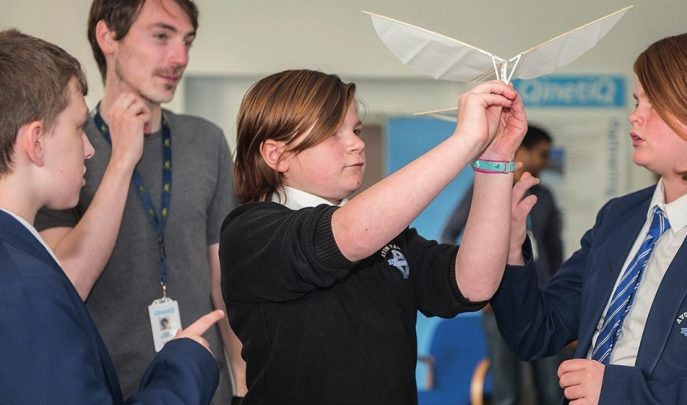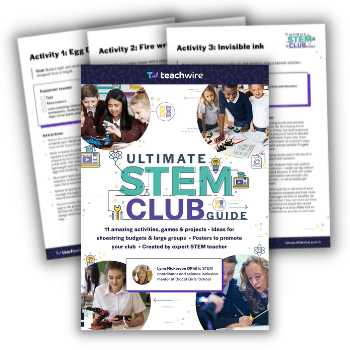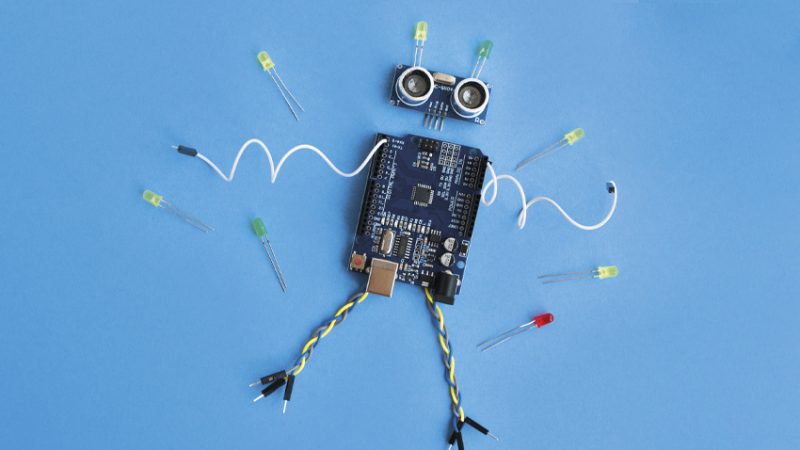Flying high – How working with industry helped boost STEM at Avon Valley College

Working with industry to test their skills has given students at Avon Valley College new insight into the real world of STEM

- by Teachwire

A group of Wiltshire secondary school students have been working with a global company to complete a technological challenge to create rather special gliders. The Avon Valley College (AVC) students were just some of those from schools across the south who were given the chance to pit their engineering and technology skills against one another in an inter-schools challenge created by leading technology and security company QinetiQ.
Listed on the London Stock Exchange, QinetiQ is a leading science and engineering company operating primarily in the defence, security and aerospace markets. In the UK, the company provides test, evaluation and training support services to the UK Ministry of Defence (MOD), employing 2000 employees at over 20 sites, and it is responsible for over 750 MOD projects. In fact QinetiQ is the UK’s largest research and technology organisation.
The challenge took place at Boscombe Down, the aircraft testing site at Amesbury, Wiltshire, run and managed by QinetiQ – which was created as part of the breakup of the Defence Evaluation and Research Agency in 2001. Appropriately perhaps given the nature of Boscombe Down, the students were tasked to study and then construct an ornithopter – flapping wing gliders like the one designed by Leonardo da Vinci.
Throughout the year the five, Year 7 AVC students who made up the team worked with two aviation engineers from QinetiQ on the challenge. Student team members Jasmine Edwards, Rosie Read, Sarah-Jane Tyrrell, Tom Hallam and Jonny Moncrieff were also supported by Gemma Doré, a test pilot trainer who has flown with British astronaut, Tim Peake.
Commitment and curiosity
The team’s commitment to the challenge underlines the importance the secondary school attaches to STEM learning. As AVC’s principal, Tim Webber explains, “Science fires pupils’ curiosity about the world around them and offers chances to find explanations. The subject engages learners at many levels, linking direct practical experience with scientific ideas. These sorts of learning experiences help students learn how knowledge and understanding in science are rooted in evidence.
“They discover how scientific ideas contribute to technological change – affecting industry, business and medicine and improving quality of life. They trace the development of science worldwide and recognise its cultural significance. They learn to question and discuss issues that may affect their own lives, the directions of societies and the future of the world.”
“Over the term of making and analysing the project we did lots of trial and error to put together the ornithopter without using instructions, “ says Year 7 student, Jasmine Edwards. “We had to work out how to use 2D design, how to accurately measure, how to present ideas to others, how to relate to real planes and helicopters to the ornithopter and most importantly how to work and co-operate as a team.
My favourite part of the project would have to be working on the 2D design and competing at Quantico in Boscombe Down. I enjoyed working on the 2D design because I love designing things that are original and unique.”
“The team worked really well,” observes technology teacher Simon Ross. “Their collaboration was positively commented upon by the QinetiQ competition judges.”
A taste of success
Having built the ornithopter, the team proceeded to test it and once again the five were praised for their teamwork. “Our team again worked together producing a flying ornithopter, to cries of ‘It flies…it flies!’” recalls Mr Ross, with pride. Although the AVC students won the first challenge with longest flight time, they failed to win the distance challenge. “That’s for next time,” says Mr Ross philosophically. “Overall we came third, not bad for the youngest team, but we’ll be back,” he adds.
And leaving students wanting more is at the heart of the QinetiQ challenge – which aims to inspire the next generation of future scientists and engineers. It certainly seemed to do that for the AVC team. Before the awards were presented, the students were taken on a tour of the training facilities for the apprentice engineers; a fantastic workshop with traditional and high-tech resources for the study of avionics or aircraft engineering.
Later, during an awards ceremony, all the teams taking part were presented with QinetiQ bags by one of the senior staff, who commented on how well the day had gone and that QinetiQ would be hosting another competition next year.
“All in all,” concludes Mr Ross, “It was a really good experience of what the world of engineering can offer possible students. For anyone who likes practical work with the challenge of understanding maths, science and technology this could be a career pathway for you.”
“This has been a valuable challenge,” says Mr Webber. “It was really quite hard for our students, particularly as the other teams were all Year 9 students. We are pleased they did so well. And we think their success could be no better vindication for our STEM provision at the college. It proves just how important we think science, technology, engineering and maths are.”
Links for life
QinetiQ employs more than 10,000 people worldwide, and its scientists and engineers solve some of the world’s most important problems. “These sorts of industry – school experiences are vitally important,” insists Simon Sparkes, test pilot and former Commanding Officer at the QinetiQ/ MoD’s Empire Test Pilots’ School based at Boscombe Down. “The way that QinetiQ engages with the next generation is to be applauded. Many vital STEM roles are not conventional 9-to-5 desk jobs, but they are amazing jobs that young people may never have considered or even knew existed.
“Many of these roles, especially around engineering, can be accessed via apprenticeships, and apprenticeships are vital to this industry. As an ex technical apprentice myself I understand the dilemma that young people face when deciding between university or a high-level apprenticeship; they are quite different. And experiences like this inter-schools challenge help to give teenagers a better insight into the opportunities open to them, and I think will help them to make informed decisions about their future education and training.”
And it’s just as important for schools to engage with industry. “At Avon Valley College the “STEM” subjects are taught separately,” explains Mr Webber, “but teachers make connections between them wherever possible as there are naturally occurring overlaps and links between the subjects. Sometimes this is done within timetabled lessons, and sometimes through projects such as the ornithopter.
It is through putting all the disciplines together and making links between them by applying that knowledge that students can really see the value in their learning, and it helps them to have a better understanding of scientific, mathematical and technological concepts and processes.”











